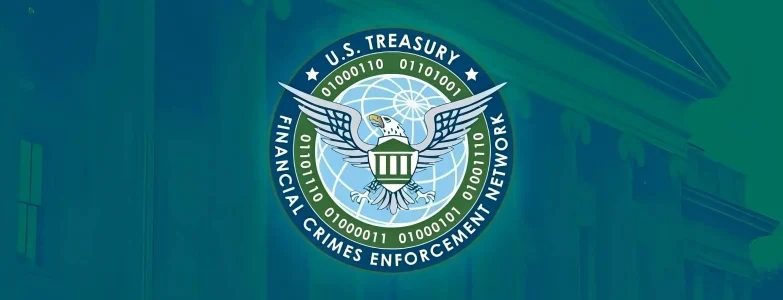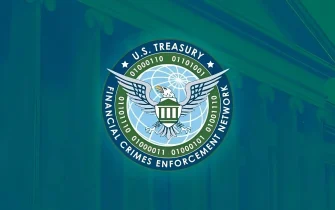This article was summarized by the GPCPAs Editorial Team based on information from the U.S. Department of the Treasury’s Financial Crimes Enforcement Network (FinCEN), AP News, and Checkpoint, a service of Thomson Reuters. The content reflects the team’s interpretation.
In a decisive move to protect U.S. national security and combat illicit finance, the U.S. Department of the Treasury’s Financial Crimes Enforcement Network (FinCEN) has issued new rules on August 28, 2024, aimed at enhancing transparency in the real estate market and cracking down on money laundering. These rules require real estate professionals to report details of non-financed residential property sales involving legal entities, trusts, and shell companies. By targeting these transactions, the new measures are designed to reveal the actual owners behind certain all-cash purchases, closing gaps that have allowed illicit actors to hide their identities and move dirty money through the American financial system.
The Treasury Department has been hard at work to disrupt attempts to use the United States to hide and launder ill-gotten gains,” said U.S. Secretary of the Treasury Janet L. Yellen. “That includes by addressing our biggest regulatory deficiencies, including through these two new rules that close critical loopholes in the U.S. financial system that bad actors use to facilitate serious crimes like corruption, narcotrafficking, and fraud.”
“Real Estate Report”
The newly established “Real Estate Report,” which goes into effect on December 1, 2025, mandates enhanced reporting and record-keeping for specific non-financed real estate transactions involving legal entities and trusts. These measures are designed to boost transparency and close loopholes that have been exploited by criminals to obscure the origin of their funds. Notably, the rule doesn’t affect transactions involving individuals, allowing for a more targeted approach that limits the regulatory burden on legitimate transactions. According to Treasury Secretary Janet Yellen, these steps are crucial to “make it harder for criminals to exploit our strong residential real estate and investment adviser sectors,” thereby fortifying the overall integrity of the U.S. financial system.

Investment Advisers Face New Scrutiny
In tandem with the real estate rule, a new regulation targeting investment advisers will take effect on January 1, 2026. This rule requires advisers to implement robust programs to detect and prevent money laundering and terrorism financing. It applies to investment advisers registered with the U.S. Securities and Exchange Commission (SEC), as well as certain foreign advisers with U.S. operations or U.S. clients, excluding state-registered advisers, foreign private advisers, and family offices.
By imposing these new requirements, the Treasury aims to cut off another avenue through which illicit funds can flow into the U.S. The department highlighted that investment advisers have previously been used by sanctioned entities, including foreign oligarchs, to access sensitive U.S. technologies and services—posing long-term national security risks.
Balancing Act Between Regulation and Business Impact
While the new rules are a significant step forward in combating illicit finance, FinCEN has taken a measured approach. The department has worked closely with stakeholders, including industry groups and intergovernmental partners, to balance the necessity for effective regulation with the need to avoid overburdening businesses, especially smaller enterprises.
This balancing act is evident in the rules’ provisions, which allow reporting entities to rely on certified information from third parties, thereby reducing the compliance burden while maintaining robust oversight.

A Broader Strategy Against Corruption and Illicit Finance
These regulatory updates are part of the Biden-Harris administration’s broader strategy to enhance financial transparency and combat corruption. By closing critical gaps in the U.S. financial regulatory framework, the Treasury aims to protect the U.S. economy from the corrosive effects of corruption, narcotrafficking, and fraud.
The coming months will reveal the impact of these new rules, but what is clear is that the Treasury Department is taking a proactive stance in safeguarding the financial system from illicit actors. Whether these measures will deter bad actors or push them to find new methods remains to be seen, but for now, the message is clear: the era of regulatory leniency is over.
This article was summarized by the GPCPAs Editorial Team based on information from the U.S. Department of the Treasury’s Financial Crimes Enforcement Network (FinCEN) and Checkpoint, a service of Thomson Reuters. © 2024 by Thomson Reuters/Tax & Accounting. Reprinted with permission. All rights reserved.
Ensure your financial future and comply with the new FinCEN regulations.
Our international tax and compliance experts are here to guide you through the process and help you avoid penalties. Schedule a consultation with our experts today. [Schedule Now]
For personalized assistance, contact us and book a consultation today. Stay compliant, avoid penalties, and secure your financial future.











